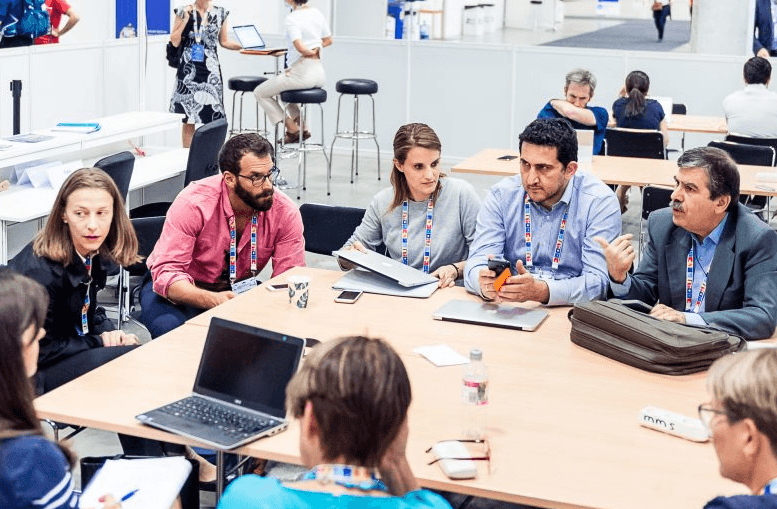ESPID promotes excellence in paediatric infectious diseases and child health.
Our community forms the basis for European investigators interested in infectious diseases in children and infection prevention in childhood.
We invite you to join our community and change the lives of children!
Build your career, take your research to the next level and improve your clinical practice throughout the year with these ESPID opportunities.

Get inspired, build your network, make a difference!
The ESPID Annual Meeting is your meeting to update your knowledge and advance the community's. We invite you to attend and take an active role.
Learn from the experts by re-watching the lectures from the Annual ESPID Meeting.
Learn in depth about antibiotic management, childhood vaccinations and more.
This is your one stop educational website on Paediatric Infectious Diseases. And it's free for members!
ESPID's PID research network is a way to find peers with similar research interests. Add yourself to the network by editing your member profile.

ECDC investigates Echovirus 11 infections in neonates
ECDC would like to share with you a new event that ECDC is investigating (Communicable disease threats report, 11-17 June 2023, week 24).
On 28 April 2023, the French Paediatric Society reported that since July 2022, nine neonates presented with severe sepsis, complicated by hepatic failure, and neurological or myocardial involvement due to infection with Echovirus 11 (E11) in France, seven neonates died. Reported cases were predominantly male, including four pairs of premature twins and a full-term singleton. Five out of nine neonates were born with low birth weight. All cases presented clinical signs between three and six days of age. Maternal clinical symptoms, such as fever and gastrointestinal signs, were reported in four out of five mothers during the three days before or at delivery. Seven cases are reported to have occurred in the context of confirmed vertical transmission. According to the French Enterovirus (EV) surveillance, E11 was the predominant circulating EV in 2022 in neonates (30.2% of identified viruses). It is also reported that circulation of a new variant of E11 has been occurring since June 2022 in metropolitan France and in certain Overseas Countries and Territories (New Caledonia and Réunion).
On 15 June 2023, a scientific article was published in the Eurosurveillance journal reporting two cases of fulminant hepatitis in Italy linked with E11 infection. The cases are non-identical, male, late-preterm twins who were transferred in April to the neonatal intensive care unit due to episodes of apnoea requiring respiratory support. EV typing was performed in urine and plasma specimens by whole genome sequencing and showed the presence of E11. The phylogenetic and molecular analysis concluded that the Italian E11 strains clustered with French strains collected in 2023, which together composed a divergent lineage. The mother presented with a single episode of fever at 35 weeks and 2 days of gestational age. The infants were born the following day. No specimens were collected from the mother for virological investigations.
ECDC would like to raise awareness among the clinicians and specifically the neonatologists and paediatric infectious diseases doctors on this event. We would therefore appreciate if you could share the currently available information with the ESPID network with the aim to disseminate the current limited knowledge on the situation and encourage the testing and reporting of any suspected cases to national public health agencies.
ESPID Iceland Course - A practical approach to serious infection in children
Topic: A practical approach to serious infection in children
Date: 1-3 February 2024
Venue: Reykjavik, Iceland
For more information click here
Ninth ESWI Influenza Conference
Ninth ESWI Influenza Conference, which will be held in Valencia, Spain, 17-20 September 2023
For more information click here
Oxford University are offering a Postgraduate Certificate (new this upcoming academic year), a Postgraduate Diploma, and a MSc in Paediatric Infectious Diseases. The courses bring leaders in the field from around the world to teach a comprehensive syllabus to inspire and educate a new generation of paediatricians, and ultimately improve Child Health.
For more information click here
Amazing benefits such as Meeting discounts, online learning and journal access.